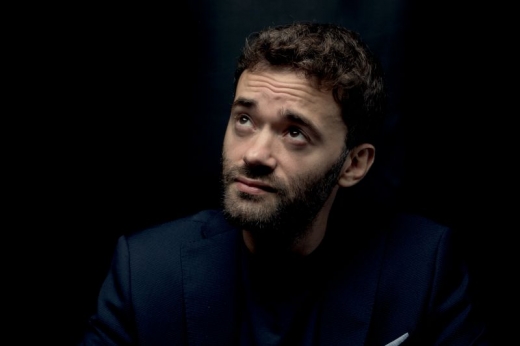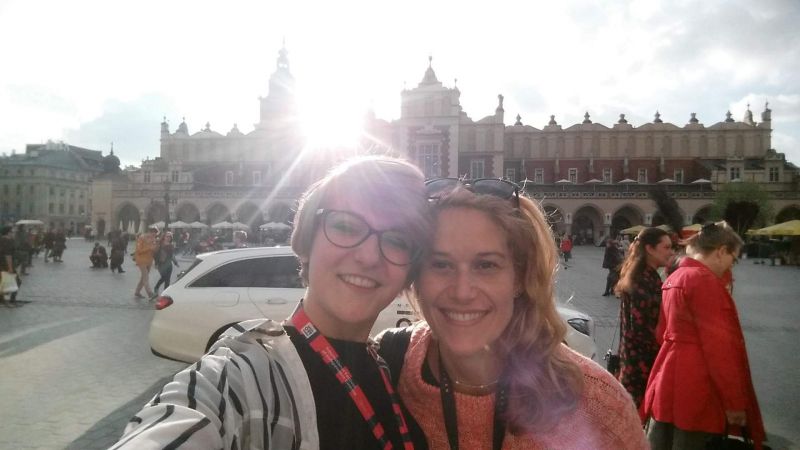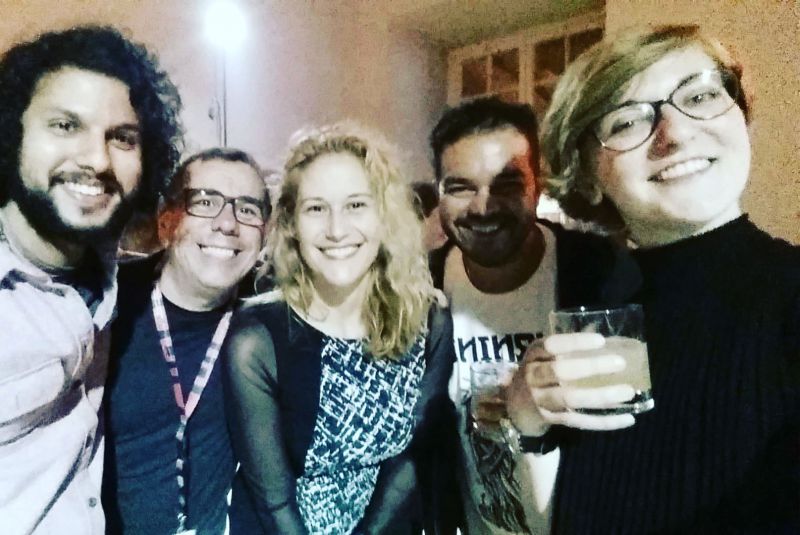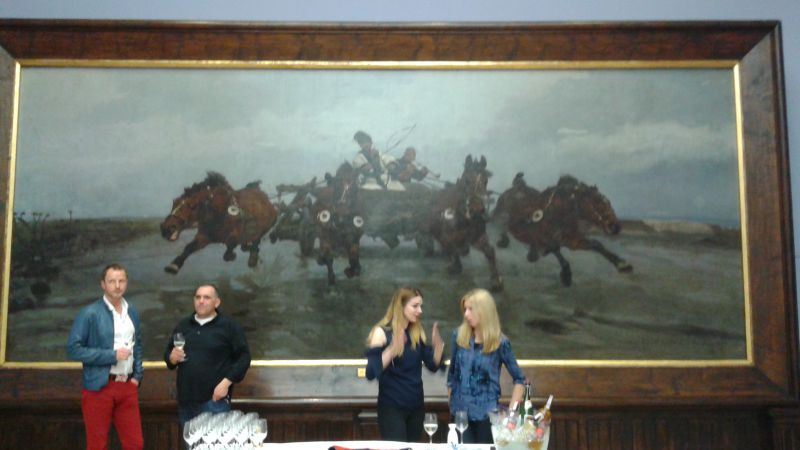
Pescara born Umberto Smerilli is one of Italy's emerging masterful film composers. A graduate of the Italian National School of Cinema at Centro Sperimentale di Cinematografia, Umberto is best known for his work on 'Scrambled' (2007), 'Il Torneo' (2008) and 'Worldly Girl' (2016). He is a multi talent who synergizes the old and new world with confidence, grace and Italian panache. My first encounter with Umberto was at the Off Camera Film Festival in Krakow, Poland in May, 2017 where he came to represent his latest film 'Worldly Girl'. It was a memorable meeting inside a new Mercedes going close to 200KM an hour, with him sitting shotgun and myself in the backseat behind the driver. While the rest of us in the car were holding on for dear life, Umberto sat calmly, savoring the joy ride with a big smile on his face as he spoke of his all time favorite film composers and thereafter turned the radio to full blast to sing along to Edith Piaf's “Je ne Regrette Rien.” Umberto currently resides in Rome.
After our crazy meeting and having witnessed his great passion of music at all moments and at any speed, I couldn't wait to interview Umberto Smerilli about his career- past, present and future. Here is what he had to say:
Did you always know you want to be a film composer?
UMBERTO: When I was seventeen, I saw 'Knife in the Water' by Roman Polanski and I was completely struck by this masterpiece. I realized then that music and image together can touch the heart and the mind at the same time. That's when I “knew.”
Do you feel that a film score is a vital part of telling its story?
UMBERTO: It depends on the movie. There are some movies that don’t need music for their style, genre or their structure; but in most cases, music is an incomparable ally in telling a story. For instance, music can provide further information about characters, the setting and events. But there is one thing among the others that only music can achieve, and that is the ability to show the invisible, to talk beyond appearance. This makes music fundamental any time a tale deals with magic, psychology or feelings.
Who have been some of your greatest inspirations?
UMBERTO: I have many masters in my mind. Among others, I love the Bernard Herrmann touch in the Hitchcock movies. Nowadays, I think Alexander Desplat under the direction of Roman Polanski delivered amazing, inspiring scores. Given that I'm Italian, I cannot forget to mention Ennio Morricone who “simply” drew the lines for music genres in Cinema, making a difference forever.
Italian cinema used to be quite prolific. Where do you think it stands today on the world stage?
UMBERTO: The arts reflect the society that produces it. As long as Italy has been somehow a key country in the history of the 20th century, its cinema has reflected universal passions, conflicts and history. As long as Italy bled after WW2, or struggled for economic boom in the ’60's, or was thrilled by ’70's, it has held the power to communicate to the world; always after we lost something. Nowadays, after twenty years of introspection, Italian Cinema seems to have regained its strength in speaking about the present (I don’t take in to account “Mediterraneo” and “La Vita è Bella”). Considering Rosi, Sorrentino and Garrone, I believe there is a new generation of talented Italian directors ready to speak the truth. Let's stay tuned.
How do you think the digital revolution in film has affected film scoring?
UMBERTO: It has been a storm. Everything is faster. Today, it's normal for a composer to be asked to score a movie during the editing in a stage, which is too close to the film's final stage. Composers are also expected to deal with temp tracks that have been easily chosen among previous film scores at the finger tips of the director and editor. Further, composers today are expected to deliver music mockups that are very close to the orchestral quality made possible by powerful software. Even though this is all very amazing and means more control and more reliability on one hand, on the other hand it also means that the creativity and the possibility to steer clear of clichés is narrowed for the composer. Sometimes, slower is better!
Is there a film in your career so far you are most proud of?
UMBERTO: I am very proud of “Pugni Chiusi” by Fiorella Infascelli, a documentary presented at 68°Mostra del Cinema di Venezia. It describes the protest of a group of workers of the Vinyls factory in Sardinia. They decided to imprison themselves in the old abandoned prison of Asinara. I am very happy to serve a noble cause with my craft.
Can you speak a little about your most recent film 'Worldly Girl'?
UMBERTO: It is a coming-of-age story set in a radical religious environment. Everything spins around the conflict of self-realization against social expectations. Love is the strength and catalyst that breaks the initial equilibrium for Giulia, a young Jehova’s Witness, who starts a relation with a “worldly” boy (a person out of the community) and is consequently shut out of her community. The film is structured almost like a biblical parable, but with a different outcome. The girl is catapulted into this world that is essentially dirty, but the moral of the story lies elsewhere. In the end, she doesn’t go back on her decisions. We tried to be objective and realistic in portraying that world. We tried to make all the characters three-dimensional because they all have a dark side to them, including the protagonist. But we have our own point of view, a non- religious approach to the story: the world is a place where it’s easy to lose your way but, for someone looking for their identity, it’s also an opportunity to find yourself; and some experiences are worth it. 'Wordly Girl' was the debut feature film for most of the crew. So it has been a great challenge for us all. We discussed each aspect of the film (script, soundtrack, photography, etc) for about two years, so we are very happy about the international recognition it's gaining in important festivals.
How did you and Marco Danieli begin working together?
UMBERTO: We both studied at Italian National School of Cinema at Centro Sperimentale di Cinematografia at the same time. After the course we began collaborating for short movies and documentaries and trained our common language.
You recently traveled to Off Camera Film Festival in Krakow. How was your experience there?
UMBERTO: The Festival was simply amazing! It had a bunch of great movies, talented directors, an outstanding jury, nice locations and crazy rides on festival sponsored Mercedes. I was very impressed by the organization of Off Camera. They really have a strategic niche film festival and it’s clear they will continue to grow. So, keep an eye open for Off Camera Film Festival!
What are you working on next?
UMBERTO: I am working on a comedy that will be shot this summer. The director, also a former student of Centro Sperimentale di Cinematografia, would like to have some music in mind while shooting.
Interview conducted by Vanessa McMahon






























